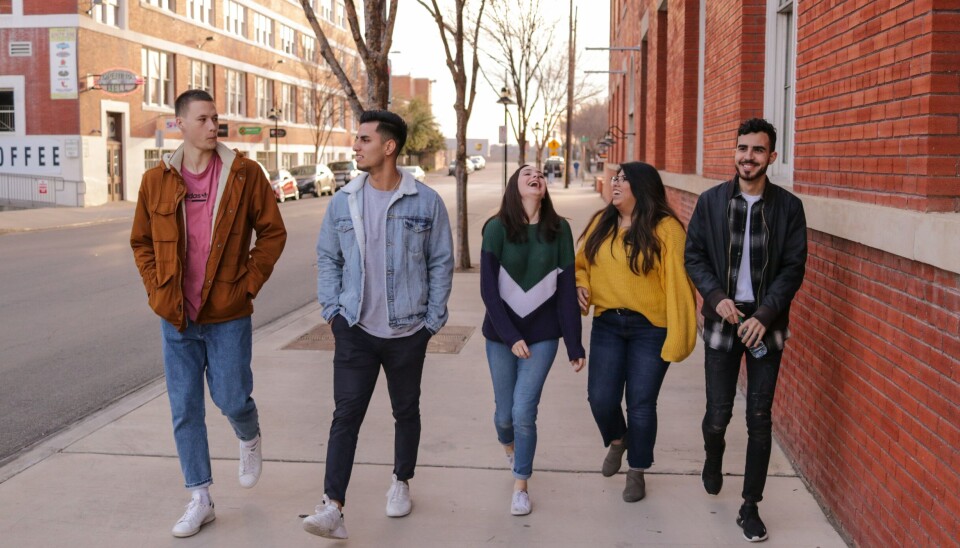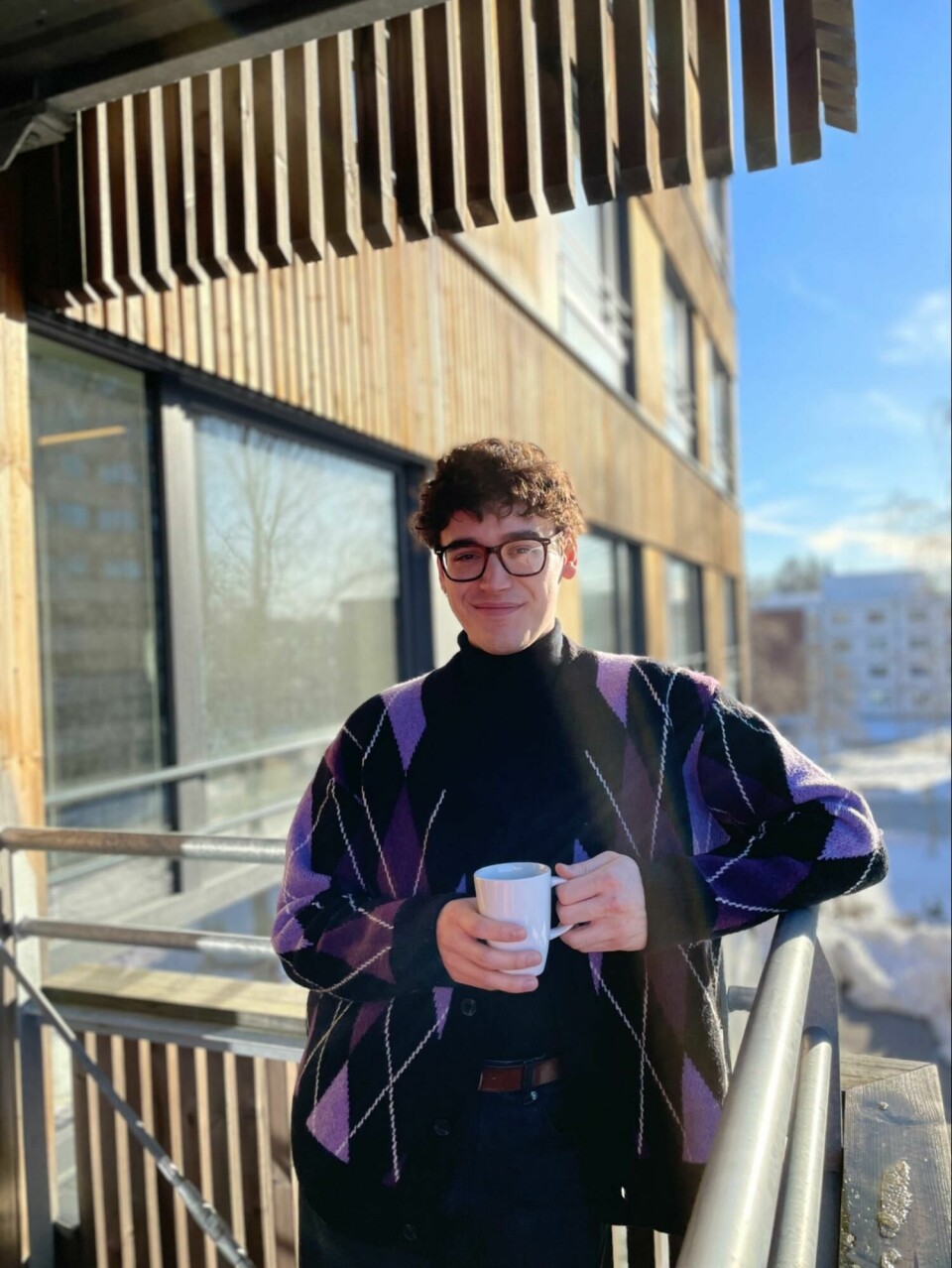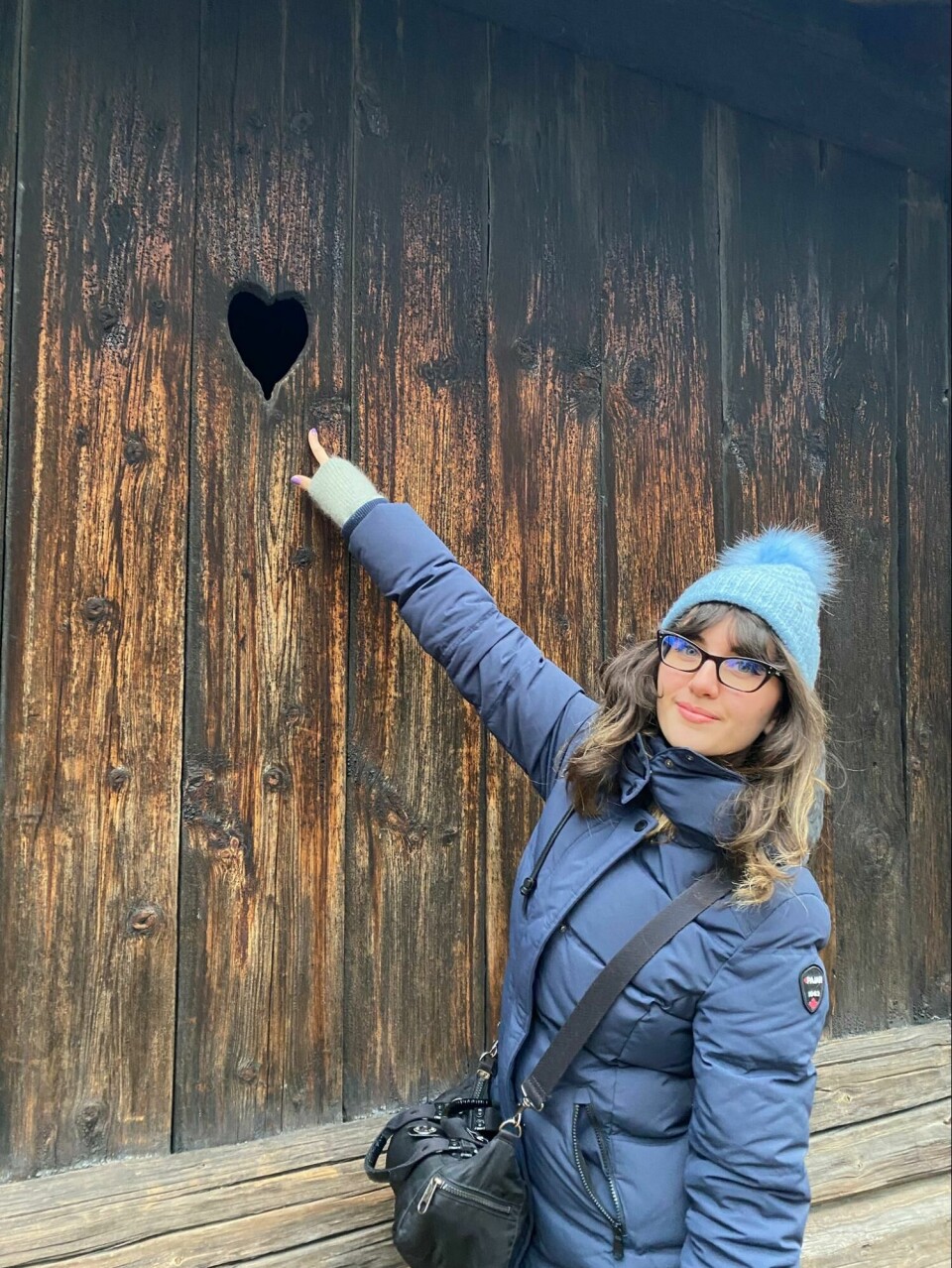
Three Ways to Make Norway Feel Like Home
...because moving to a new country can indeed be very overwhelming.
The lack of a close social network, the tendency to isolate oneself due to sadness or stress, and struggling to look after one's emotional well-being are the most common challenges international students in UiO faced after having moved to Oslo, according to the small survey I conducted. Fortunately, my interviewees have found ways to overcome all of them — and are now sharing their advice.

#1. Finding “your own crowd” is very important
As Ana, one of my interviewees, notes, “people make a place feel like home. The main aspect of all the different places I have been to were the people I met and spent time with.” Ana came to Norway one semester ago with an Erasmus+ exchange program from Georgia. Being a student from outside the EU/EEA, she found herself in a place full of various opportunities and possibilities for self-development. That’s why she extended her exchange period to one more semester. Now she considers herself to be “one of the happiest exchange students there are.”
Getting to know people as an international student was a natural and pleasant experience for Ana: “It is incredibly easy to find your new family on an exchange program, since everyone coming here is in the same boat. We all need to be part of a community of like-minded people. To think that you are surrounded by other students who also chose Norway for their exchange is a good start for finding common grounds.”
Real friendship takes time

Nevertheless, building a closer social network and more genuine, intimate relationships in a new country gets more challenging over time. Ritika — an LLM student from the UK — notices that finding close friends is a lengthy process, and to achieve it, one needs to be open and patient: “It takes time, because you have such a close network of friends and family at home that you want it to be replicated straight away here, but I think with every sort of relationship, friendship, it takes time to develop. So you should not try to rush it, but it needs to happen organically.”
Ritika came to Norway as an exchange student in 2020. Throughout her studies, she came to love Norwegian culture, made close friends with other students, and found various possibilities that studying here could offer — for instance, she continued to the Masters program right after her exchange year. Ritika suggests that to get over the feeling of loneliness or homesickness, one should not “block out these feelings, but rather try to make genuine friendships and genuine relationships.”
There seems to be one more important part of creating a new social network far from home. Floris, an LLM exchange student from Belgium, believes that new close connections make one's life richer: “I have beautiful new friends who aren't replacing the old but rather creating something new in my life.” Floris came to Norway only several months ago, but he already met people he cares for and is happy to share a cup of coffee with in the morning. As he mentions, Norway is meeting his expectations of a happy life. Floris chose this country for his exchange over many other attractive opportunities, precisely because he appreciated the Norwegian standard of living and nature, and he’s looking forward to fully embracing the opportunities that his student life here offers.

Building relationships may be difficult
There are dozens of ways to express your friendly feelings and create close bonds with the new people you meet — but sometimes you have to make more of an effort.
Having a flat with a shared kitchen, for example, helps a lot with finding friends. “I'm very happy that I stayed in a flat with a shared kitchen, because it is such an important social hub when you're a student, and an international student especially... That's how I met my closest friends. My closest friends here are my flatmates,” says Ritika. Showing that you mean well, and, at the same time, respect others’ personal space and needs is something people always appreciate. When her new flatmate arrived in Norway after a tiring flight from Berlin, Ritika shared her dinner with them, and Ana helped her future friends with finding furniture for their unfurnished rooms on finn.no.

However, Will, an international student from Scotland, the UK, found it very challenging to settle into his new place, as his flatmates weren't as supportive and open as Ritika’s and Ana’s. Will has been studying the Norwegian language and dialects for two years back at home, and he came to Norway this August to fulfill a year of compulsory studies abroad. He admits that knowing the language made it less stressful for him to integrate into Norwegian culture and make new connections. He met his new friends during language classes at UiO. After them, they usually go to the Deichman or the HumSam library, study together, and practice their Norwegian.
Attending events and joining student associations may help
Taking part in Fadderuka (introductory week to new students) and similar activities organised by the University or SiO and engaging with student associations is another effective way to make new friends.
Great thing about Norway is that it is quite distinctive when it comes to the variety of free events offered to students. “Back in my university we do not organise that much stuff for international students, so it's really a luxury to be here in that sense,” remarks Floris.
Lyuba, an international student from Bulgaria who came to Norway for the Autumn semester as a Master's student in Communication and Media Studies, takes advantage of the student life Norway has to offer. She admires art and loves meeting new people and experiencing new things together with them. “Go to events and meet new people until you meet the ones that you really want to become closer with", suggests Lyuba. “Find a cool event or activity and take the initiative to have students around you also take part.” She originally came to Norway for one semester, but due to her love for Norway and various opportunities in her field, she decided to extend her exchange period to the Spring semester.
At the same time, remember that feeling alone or homesick sometimes is natural when one lives in another country. “All of us go through this,” says Ritika, “it feels as if you're always stuck in between two places. When you feel lonely, you just want this feeling to go away, so you go to all of these events, and keep yourself busy. I think that's not the right way to deal with loneliness — it is a very socially and emotionally draining thing to do.” Instead, she offers to balance between socialising and your alone time. Otherwise, social exhaustion might lead a person to further isolate oneself and experience more loneliness and homesickness.
#2. Try not to isolate yourself
Needing to be alone for a while is perfectly normal. However, when it starts to feel like a forced or unwanted isolation that disrupts your everyday life, you need to find a way out.
Two strategies against isolation
Floris has a whole strategy for dealing with the pull of self-isolation: “Having moments when you decide 'okay, these are 10 minutes when I can be inherently unhappy or very sad' is good. You should limit such sad moments and tell yourself: 'I'll leave it behind me, I'll put it back in the closet, and I'll go for a walk or do a little bit of something else.'" Being open about your feelings is another way to overcome this challenge: “Talk to someone, try to listen to the stories of other students, both internationals and Norwegians. Norway is quite big. Norwegian students in Oslo are from all around the country, and they also might get homesick — just like internationals,” recommends Floris.
Revisit the same spaces to make them feel familiar — a library, a café or a museum for example.
Lyuba, an exchange student from Bulgaria
Lyuba’s solution to force isolation is to be in public. She believes that communal spaces are perfect for spending time alone and being safe from loneliness — thanks to the people around you. “Revisit the same spaces to make them feel familiar — a library, a café or a museum for example. You start recognising the faces of the people around you, who come to the same place as repeatedly as you. It gets very inspiring at some point and helps you to overcome the feeling of loneliness and isolation.” She also suggests engaging in sports or yoga for mindfulness. Her strategy is to listen to one music album at a time while jogging or exercising. This way she manages to transform these activities into a pleasant routine.
Creating a comfortable space is a must
Ana is convinced that it is important to take some time to decorate your room according to your taste: “The more time you spend on it, the more you will get to love it and the more attached you will feel.” Floris finds room decoration an essential part of creating a comfortable personal space as well: “I brought a second-hand closet and an armchair from SiO flea markets. Such things have a character, and that helped me to make a space of my own. When you're in your room and you look around, you feel like this is something you put your time in, you created, and it feels more like home.”
#3. Always take care of your emotional well-being
According to the World Population Review, Norway ranked #6 in the list of the happiest countries in the world. It has been at the top of such rankings for many years — thanks to the emphasis on healthy work-life balance, no college tuition fees (alas, this is changing for internationals from outside the EU/EEA in Autumn 2023), a notably low criminal rate, and much more.
To Floris, Norway offers a way healthier environment to look after your mental well-being than many other countries: “There's a general culture in this country which is way less stressed... Things like mental well-being and being happy are so important here that they put it up to the front, which is a very beautiful thing.”
“During my time in Norway, I've learned what a good quality of life is, both mentally and physically.”
Floris, an exchange student from Belgium
Pursuing a healthy lifestyle is a part of Norwegian culture, and Floris has noticed positive changes in his own daily routine after moving to Oslo: “During my time in Norway, I've learned what a good quality of life is, both mentally and physically.”
For many students, a healthy lifestyle includes getting closer to nature. “Every time you feel stressed, like if it was exam stress, or sometimes you can get a bit too sociable as well, and if you just need a bit of a moment to yourself, you can go for a cool-down sort of a walk to calm down and just collect your thoughts,” reflects Ritika. “There are so many activities going on all the time... It's all like 'Go, Go, Go!' You try to get involved in everything, and there's a fear of missing out, but you have to take a step back and just be with yourself for a moment.”
Norwegian nature is a new kind of experience for many international students. “When you're from a country where there's not a lot of nature, to be able to just go out for a walk is a big deal, and there are still so many beautiful places in Norway that I haven't even discovered yet,” says Floris.
It also plays an important role for students who used to spend a lot of time in their rooms back in Scotland. Will's lifestyle has changed after moving to Norway, and now he often goes for a walk around Sognsvann lake or Frognerseteren: “Getting out of the house is good. In the UK, I enjoyed spending a lot of time in my room, because it's comfy and I lived with people I liked. But in Oslo, it became necessary for me to go outside. Luckily, we got loads of opportunities for that.”
Remember: all the challenges are worth it in the end
Knowing that Norway is the place that hosted your achievement will absolutely make this place precious for you.
Ana, an exchange student from Georgia
While dealing with all the difficulties you face in Norway, remember that you're charging through various barriers toward something new and priceless — a better version of yourself. As Ana suggests, “Let your stay in a new country help you overcome fears and it will result in the feeling of reward. Knowing that Norway is the place that hosted your achievement will absolutely make this place precious for you.”
What she learned through her exchange year in Oslo is to be open to opportunities: “Never before could I imagine that I would find actual joy in cooking, learning to program, and looking for a new job in a new field. One day I find myself searching for information about taxes in Norway, and the other I am going to participate in a research project. I learned to be independent here, and this proves time and again how your personal input makes any achievement way more important,” concludes Ana.

































